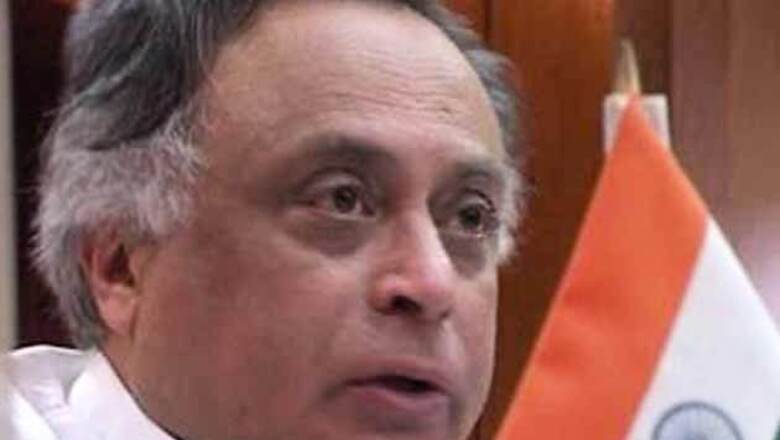
views
Addressing the Finnish parliament in Helsinki on 'Sustainable Prosperity', Jairam Ramesh, currently minister of Rural Development, had strong words for the USA, "the maximum advocacy and championing is required in the USA which, even while being the locomotive for the world economy, is an exemplar of a way of life that goes against the very canons of sustainability." Talking of the multiple challenges posed by massive migrations of people, he again pointed to the limitations of the US way, "will we 'lock-in' to the resource-intensive urbanisation and transportation model typified by America with suburban living and fuel-guzzling private vehicles?" Ramesh spoke of a consensus among most countries for equitable sharing of resources saying it was only the USA that did not accept this.
In fact, there are two recurring themes in his address; the inequity and un-sustainability embedded in the near universal model of 'consumption-driven and GDP-measured' economic growth and, the urgent need for an alternative. He argued for a re–definition of the concept of Gross National Product (GNP) to include human development indicators, quoting economists Joseph Stiglitz, Amartya Sen and Jean-Paul Fitoussi to strengthen his case. In India, for instance, the Economics of Ecosystems and Bio diversity (TEEB) study revealed that 45 per cent of the income of rural and forest dwellers came from natural resources and ecosystems. But, this "GDP of the poor" rarely figured in national accounting.
At the global level, the opportunity of the Rio +20 summit must be used to work towards a consensus on what constitutes sustainable development goals. While the new sustainable development paradigm requires that all countries accept their "fair share" of responsibilities, richer countries, Ramesh said, must have increased responsibilities.
He informed the Finnish parliament that India is working towards a sustainable development paradigm and developing a framework for "Green National Accounts". India, he said, was committed to inclusive and sustainable growth not because of global agreements but with a population that is expected to grow by 300-400 million in the next three decades, there is no other way.
The minister also warned against the growing world-wide trend of private investment to deliver the evergreen revolution in agriculture, "…we seem to have a touching faith in private agri companies to deliver goods this time around. This faith is misplaced and has devastating social consequences". In the 1950s and 60s, publicly funded collaborative research was at the heart of the green revolution and that according to him, is the way ahead.
Jairam Ramesh, who was also a member of the UN Secretary General's High Level Panel on Global Sustainability is the first Indian politician to address the Parliament of Finland.




















Comments
0 comment